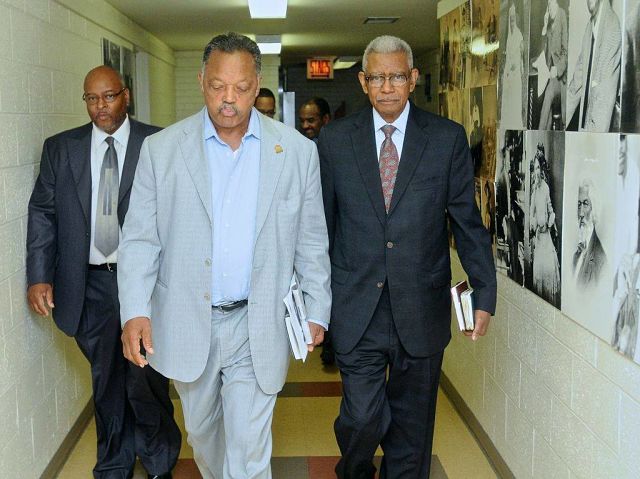 Civil rights leader Rev. Jesse Jackson is urging U.S. Congress: "to fully restore the funding for Ethiopia; and to investigate and demand information regarding the justification for halting aid to Ethiopia from both the State Department and Treasury Department." (Photo: Rev. Jesse Jackson/Facebook page)
Civil rights leader Rev. Jesse Jackson is urging U.S. Congress: "to fully restore the funding for Ethiopia; and to investigate and demand information regarding the justification for halting aid to Ethiopia from both the State Department and Treasury Department." (Photo: Rev. Jesse Jackson/Facebook page)
Tadias Magazine
By Taias Staff
Updated: September 4th, 2020
New York (TADIAS) — Civil rights leader Rev. Jesse Jackson is calling for Congress to reinstate the recently suspended U.S. foreign assistance to Ethiopia and to investigate the Trump administration for linking the surprising decision to the Grand Ethiopian Renaissance Dam.
Jackson made the appeal Thursday in a press release shared by his organization Rainbow/PUSH Coalition.
Jackson said he urges the “US Congress to fully restore the funding for Ethiopia; and to investigate and demand information regarding the justification for halting aid to Ethiopia from both the State Department and Treasury Department.”
The Trump administration confirmed this week that it has cut aid to Ethiopia over GERD. According to the Associated Press “it was an unusual example of Trump’s direct intervention on an issue in Africa, a continent he hasn’t visited as president and rarely mentions publicly.”
AP added: “On the guidance of President Trump, the State Department said Wednesday that the United States was suspending some aid to Ethiopia over the “lack of progress” in the country’s talks with Egypt and Sudan over a disputed dam project it is completing on the Nile River…A State Department spokesperson told The Associated Press the decision to “temporarily pause” some aid to a key regional security ally “reflects our concern about Ethiopia’s unilateral decision to begin to fill the dam before an agreement and all necessary dam safety measures were in place.”
In his press release Jackson said: “This is unfortunate and unjust, and the U.S. Congress must intervene, investigate and fully restore aid to Ethiopia.”
Below is the full press release courtesy of the Rainbow/PUSH Coalition:
REV. JESSE L. JACKSON, SR. CONDEMNED THE APPROVED PLAN TO STOP US FOREIGN AID TO ETHIOPIA AND CALLED ON CONGRESS TO INTERVENE.
September 3rd, 2020 | Release
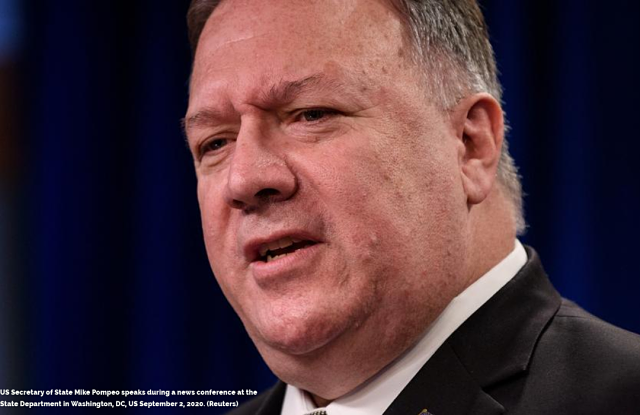
FOR IMMEDIATE RELEASE
Thursday, September 3, 2020
Rev. Jesse L. Jackson, Sr. condemned the approved plan to stop US Foreign Aid to Ethiopia and called on Congress to Intervene.
News reports that U.S. Secretary of State Mike Pompeo has approved a plan to stop $100 million in U.S. foreign aid to Ethiopia, because of the country’s ongoing dispute with Egypt and Sudan over the Grand Ethiopia Renaissance Dam (GERD), finally confirmed what we all knew from the beginning, that the U.S. has never been an impartial mediator in this conflict and instead fully supportive of Egypt.
With this action, the Trump administration, under the leadership of Treasury Secretary Steven Mnuchin (not the State Department), has fulfilled the request made last year by President Abdel Fattah el-Sisi of Egypt, in essence, urging President Trump to assist them. This is unfortunate and unjust, and the U.S. Congress must intervene, investigate and fully restore aid to Ethiopia.
Cross boundary water-sharing agreements are thorny issues that are not easily sorted out. It takes good faith and cooperation from all sides to eek out a win-win solution. The conflict between Ethiopia, Egypt and Sudan has been exacerbated by external interventions, especially the U.S. government.
This is a conflict mainly between two founding members of the African Union (AU), Ethiopia and Egypt. The AU has a Peace and Security Council that serves as “the standing decision-making organ of the AU for the prevention, management and resolution of conflicts and is the key pillar of the African Peace and Security Architecture that is the framework for promoting peace, security and stability in Africa.” This U.S. action is aimed at undermining the ongoing negotiations under the leadership of President Cyril Ramaphosa of South Africa and the current AU Chairperson.
To top it off, in a tweet a few months ago, the World Bank President David R. Malpass let it be known that he has spoken “with Ethiopian PM @AbiyAhmedAli on recent @WorldBank financing approvals important to unifying Ethiopia and its neighbor’s ability to sustain constructive dialogue + cooperation on water sharing.” To my knowledge, no statement was issued to tie the World Bank’s financial support to Egypt with its cooperation (or lack thereof) on water sharing with Ethiopia.
Ethiopia is a reliable and very stable democratic ally of the U.S. on many vital fronts and should be treated with respect and dignity.
History will judge the U.S. government and the World Bank’s unjust intervention to deny 110 million Ethiopians an “equitable and reasonable” share of the Nile River for their development needs. This is nothing short of condemning a black African nation and her population to abject and perpetual poverty. No one should condemn Egypt to suffer unduly, considering that 97 percent of its population depends on the Nile River. Justice requires treating both nations and their over 200 million people fairly with justice the result on both sides.
Looking at the World Bank data on electric power consumption (kilowatt per capita) shows how much Ethiopia needs the GERD. In 2014, the most recent year for which World Bank data is available, the average for the world per capita electric power consumption is 3133 kilowatts. The figure for Egypt is 1683. For Ethiopia it is a mere 69 (sixty-nine). A former World Bank Deputy Global Manager, Yonas Biru, wondered how Ethiopia could survive with next to nothing-electric power, in a recent article in Addis Fortune.
His answer was as revealing as it is saddening. “The nation rides on the shoulders and backs of women. From cradle to grave, women carry Ethiopia on their back, literally. Girls are condemned to fetching water from miles away rather than going to school. Their mothers travel just as far and spend just as much time collecting firewood.”
The GERD, Biru said, signifies “the emancipation of Ethiopian women. The interventions by Egypt, the Arab League, the World Bank and the U.S. to delay and scale back the GERD is a setback for women. It is a revocation of the emancipation of Ethiopian girls and women.”
Ethiopia, one of the poorest black African nations, is standing alone against the mighty forces of the U.S. and the World Bank. Befitting of its history, Ethiopia remains unflinching with its indomitable sovereignty and unwavering spirit with its trust in what its people call “Ethiopia’s God.”
The World Bank’s professed dream is “A World Free of Poverty.” It behooves me to ask if Ethiopia, too, is in the Bank’s dream. The World Bank board of directors need to explain to over 50 million girls and women in Ethiopia why the World Bank stands against their economic emancipation.
As to the US government, I call upon the US Congress: (1) to fully restore the funding for Ethiopia; and (2) to investigate and demand information regarding the justification for halting aid to Ethiopia from both the State Department and Treasury Department.
—
Related:
Cutting Aid to Ethiopia Haunts Trump in Election
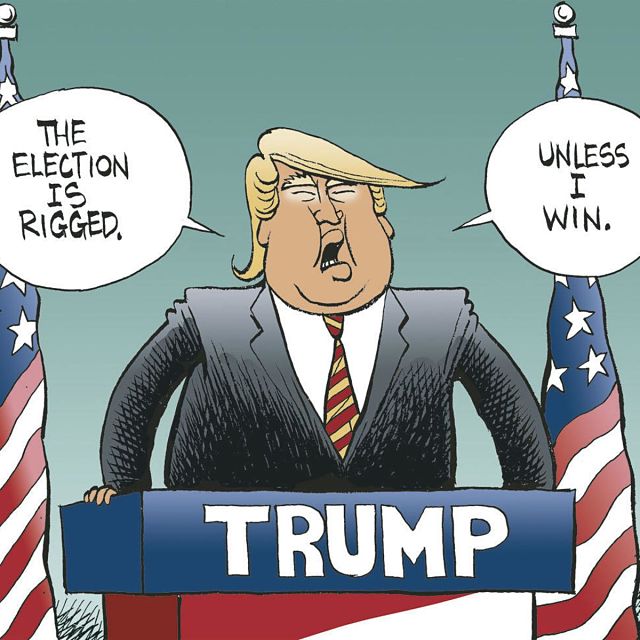
David Shinn, a former US envoy to Ethiopia said playing political hardball with Ethiopia will not only fail to obtain the desired result but will probably ensure that the Ethiopian diaspora in the US will rally against Trump and spoil his chances in the close contest. “There are sizeable Ethiopian-American communities in key states such as Georgia, Texas, and Virginia,” he said. (Image: Tulsa World)
AA
Addis Getachew | ADDIS ABABA, Ethiopia
Updated: September 2nd, 2020
Ethiopian-Americans against US cutting $130M aid to Ethiopia to enforce Egypt friendly agreement on sharing Nile waters
The US has now formally stepped in, to support Egypt and punish Ethiopia over the river water sharing dispute between the two African countries.
Last week, the Trump administration announced blocking a $130 million aid that had been earmarked to support Ethiopia’s defense and anti-terrorism efforts.
Secretary of State Mike Pompeo signed the cut in aid, ostensibly to build pressure on Ethiopia, a rugged landlocked country in the Horn of Africa.
While it is not clear to what extent the US decision will affect Ethiopia, but it has united everyone in the country and the diaspora.
“We have officially requested the US administration that they give us an explanation,” said Ethiopia’s Ambassador to Washington Fitsum Arega, while taking to Twitter.
David Shinn, a former US envoy to Ethiopia said playing political hardball with Ethiopia will not only fail to obtain the desired result but will probably ensure that the Ethiopian diaspora in the US will rally against Trump and spoil his chances in the close contest. “There are sizeable Ethiopian-American communities in key states such as Georgia, Texas, and Virginia,” he said.
Ethiopian government led by Prime Minister Abiy Ahmed had earlier rejected an agreement brokered by the US Treasury Secretary Steven Mnuchin in February related to the filling and operation of the $5billion Grand Ethiopian Renaissance Dam (GERD). Ethiopia said the US proposal was heavily tilted towards Egypt.
Relations between Cairo and Addis Ababa have strained over recent times, over the filling and operation of the dam that has come upon the Blue Nile, one of the tributaries of the River Nile.
Since June, the African Union has been mediating now to evolve a win-win formula between Ethiopia, Sudan, and Egypt.
The AU has entrusted its Bureau of the Assembly of Heads of State and Government including South Africa, Kenya, Mali, and Democratic Republic of Congo (DRC) to prevent any escalation between these countries. The European Union, the World Bank, and the US continue as observers in the group.
—
Related:
Mike Pompeo is the Worst U.S. Secretary of State in History
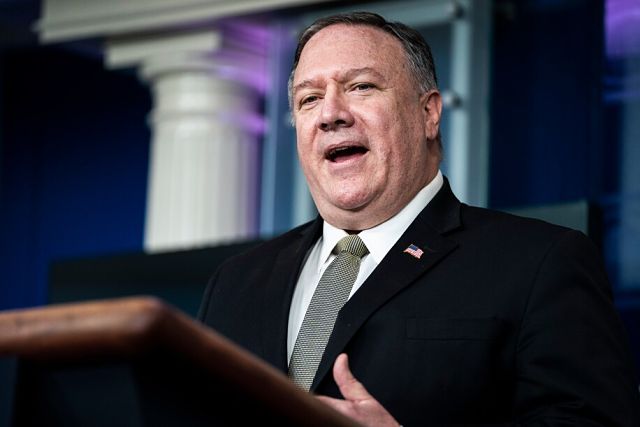
Mike Pompeo’s handing of the Trump administration’s foreign policy “has led to some of the worst diplomatic damage the United States has suffered in decades — especially in relations with its closest allies,” writes The Washington Post’s Deputy editorial page editor and columnist Jackson Diehl. (Photo: The Washington Post)
The Washington Post
Updated: August 30, 2020
As secretary of state, Mike Pompeo has presided over the collapse of negotiations with North Korea, the failure of a pressure campaign against Iran and an abortive attempt to oust Venezuela’s authoritarian regime. On his watch, China has carried out genocide in its Xinjiang region and the suppression of Hong Kong’s freedoms without resistance from Washington until it was too late.
Pompeo has failed to fill dozens of senior positions at the State Department, and hundreds of career diplomats have left or been driven out in political purges. Morale is at a historic low: In staff surveys, there has been a 34 percent increase between 2016 and 2019 in those who say the State Department’s senior leaders “did not maintain high levels of honesty and integrity.” Maybe that’s because Pompeo himself has defied legal mandates from Congress, skirted a law restricting arms sales to Saudi Arabia, tasked staffers with carrying out errands for himself and his wife, and fired the inspector general who was investigating his violations.
Last week, Pompeo crossed yet another ethical line by speaking before the Republican National Convention, thereby disregarding the State Department’s explicit legal guidance against such appearances. The speech he delivered was weak and littered with false or simply ludicrous claims, such as that the recent diplomatic accord between Israel and the United Arab Emirates is “a deal that our grandchildren will read about in their history books.” Maybe if they major in Middle Eastern affairs.
With his ambitions likely fixed on a presidential candidacy in 2024, Pompeo is undoubtedly hoping most of the diplomatic disasters will ultimately be blamed on President Trump, especially if Trump loses the November election. But the former Kansas congressman should not get off so easy. Yes, it’s Trump’s foreign policy. But Pompeo’s steering of it has led to some of the worst diplomatic damage the United States has suffered in decades — especially in relations with its closest allies.
—
Related:
Pompeo approves plans to halt aid to Ethiopia over Nile dam dispute
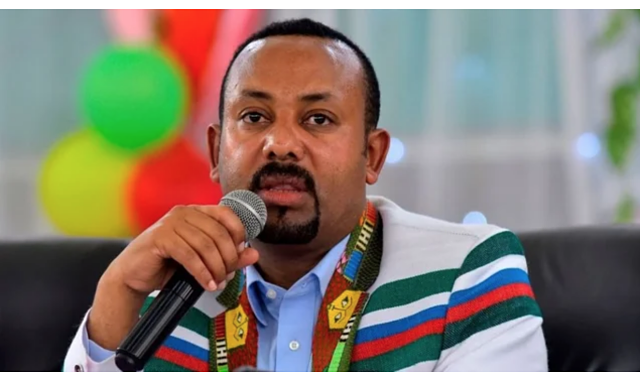
Getty Images
08/28/20
Secretary of State Mike Pompeo has approved plans to halt some U.S. aid to Ethiopia, Foreign Policy reported on Friday.
The halt in aid comes as the U.S. mediates a dispute over a dam on the Nile River that’s pitted Ethiopia against Egypt and Sudan, according to Foreign Policy. The decision could impact up to $130 million of assistance to programs including security, counter-terrorism and anti-human trafficking.
“There’s still progress being made, we still see a viable path forward here,” a U.S. official told the magazine. “The U.S. role is to do everything it can to help facilitate an agreement between the three countries that balance their interests. At the end of the day it has to be an agreement that works for these three countries.”
The State Department did not immediately respond to a request for comment from The Hill.
Ethiopia and Egypt are at a standstill in negotiations over how the dam on a tributary of the Nile will be managed.
Egypt and Sudan, which depend on the Nile for much of their fresh water, are opposed to any development they say will impact the flow downstream, including the 6,000-megawatt power plant Ethiopia hopes to develop at the dam.
—
Is the Trump Administration Using Aid to Bully Ethiopia Over Nile Dam?
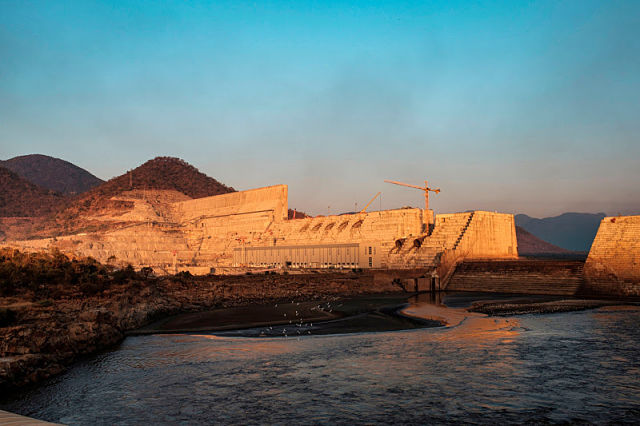
It’s too bad that the U.S. has decided to take the wrong side in a local African dispute regarding the Grand Ethiopian Renaissance Dam. As the following FP article reports the Trump administration is cutting off “some foreign assistance” to Ethiopia over GERD. The scheme may be intended to tip the scale in Egypt’s favor, but if history is any indication this kind of foreign intimidation does not work in Ethiopia. It’s also worth mentioning that the dam, a $4.5 billion hydroelectric project, is being fully funded by the Ethiopian people. (Getty Images)
U.S. Halts Some Foreign Assistance Funding to Ethiopia Over Dam Dispute with Egypt, Sudan, Some U.S. officials fear the move will harm Washington’s relationship with Addis Ababa.
Updated: AUGUST 27, 2020
Secretary of State Mike Pompeo has approved a plan to halt U.S. foreign assistance to Ethiopia as the Trump administration attempts to mediate a dispute with Egypt and Sudan over the East African country’s construction of a massive dam on the Nile River.
The decision, made this week, could affect up to nearly $130 million in U.S. foreign assistance to Ethiopia and fuel new tensions in the relationship between Washington and Addis Ababa as it carries out plans to fill the dam, according to U.S. officials and congressional aides familiar with the matter. Officials cautioned that the details of the cuts are not yet set in stone and the finalized number could amount to less than $130 million.
Programs that are on the chopping block include security assistance, counterterrorism and military education and training, anti-human trafficking programs, and broader development assistance funding, officials and congressional aides said. The cuts would not impact U.S. funding for emergency humanitarian relief, food assistance, or health programs aimed at addressing COVID-19 and HIV/AIDS, officials said.
The move is meant to address the standoff between Ethiopia and other countries that rely on the Nile River downstream that have opposed the construction of the massive dam project, called the Grand Ethiopian Renaissance Dam. Egypt sees the dam’s construction as a core security issue given the country’s heavy reliance on the river for fresh water and agriculture, and in the past Egyptian President Abdel Fattah al-Sisi has hinted his country could use military force to halt the dam’s construction.
Some Ethiopian officials have said they believe the Trump administration is taking Egypt’s side in the dispute. President Donald Trump has shown a fondness for Sisi, reportedly calling him his “favorite dictator” during a G-7 summit last year. Officials familiar with negotiations said the Trump administration has not approved parallel cuts in foreign assistance to Egypt.
Administration officials have repeatedly assured all sides that Washington is an impartial mediator in the negotiations, which mark one of the few diplomatic initiatives in Africa that the president has played a personal and active role in. These officials pointed out that Egypt has accused the United States of taking Ethiopia’s side in the dispute as well.
“There’s still progress being made, we still see a viable path forward here,” said one U.S. official. “The U.S. role is to do everything it can to help facilitate an agreement between the three countries that balance their interests. At the end of the day it has to be an agreement that works for these three countries.”
But the move is likely to face sharp pushback on Capitol Hill, according to Congressional aides familiar with the matter. State Department officials briefed Congressional staff on the decision on Thursday, the aides said, and during the briefing insisted that the U.S.-Ethiopia relationship would remain strong despite a cutback in aid because the United States can have tough conversations “with friends.”
“This is a really fucking illogical way to show a ‘friend’ you really care,” one Congressional aide told Foreign Policy in response.
—
Join the conversation on Twitter and Facebook.

























